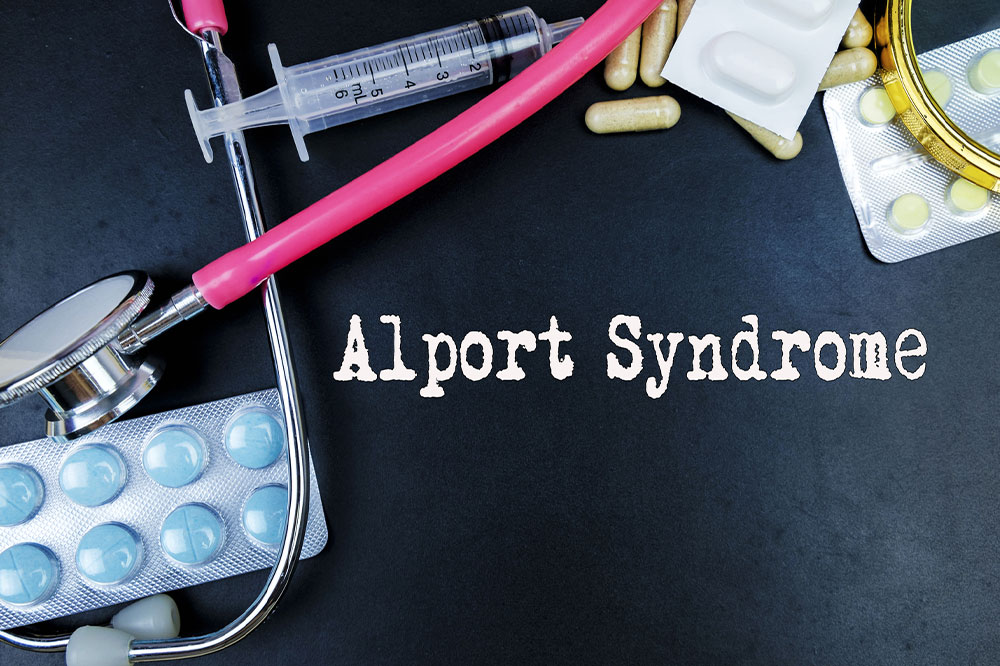
Alport syndrome – Causes, symptoms, and management
Alport syndrome is a genetic kidney disorder that has a global impact, affecting countless individuals worldwide. It is characterized by hearing loss and eye abnormalities. This article will dive into its complexities, uncovering the underlying causes, identifying the symptoms, and understanding the various management options and potential remedies available. By the end of this article, one will gain some insight into Alport syndrome and its far-reaching implications for those directly affected and their families.
Alport syndrome – What it is
Alport syndrome is a hereditary disorder that impacts the basement membranes of the kidneys, ears, and eyes. The root cause of this condition lies in mutations occurring within specific genes responsible for encoding collagen, a critical protein essential for maintaining the structure of the basement membrane.
Understanding genetic causes
Here are some of the causes of Alport syndrome:
- X-Linked inheritance
In X-linked inheritance, the genetic anomaly causing Alport syndrome is on the X chromosome. This type of inheritance primarily affects males since they possess one X and one Y chromosome. Consequently, if they inherit the mutated gene from either of their parents, they are at a higher risk of developing Alport syndrome. - Autosomal recessive inheritance
Autosomal recessive inheritance involves the presence of a single copy of the mutated gene in both parents. In the case of Alport syndrome, for a child to develop the condition, they must inherit a mutated gene from each parent. - Autosomal dominant inheritance
Autosomal dominant inheritance is a genetic pattern characterized by the transmission of a single mutated gene from one parent to the child. This mode of inheritance involves the presence of the affected gene on an autosomal chromosome, independent of the sex chromosomes (X and Y).
Identifying its symptoms
Some common symptoms include the following:
- Blood in urine (hematuria)
- High blood pressure
- Swelling in the ankles
- Worsening kidney function
- Hearing loss
- Vision problems, like cataracts
Management and treatment options
Alport syndrome does not currently have a cure; however, several management strategies can effectively slow down disease progression and alleviate its symptoms.
- Blood pressure control
Maintaining healthy blood pressure levels is essential to safeguarding kidney function and well-being. - Proteinuria management
Effectively managing proteinuria requires making mindful adjustments to one’s eating habits and lifestyle, which can play a crucial role in promoting optimal kidney health. - Hearing aids and assistive devices
Individuals facing hearing loss can significantly enhance their quality of life by using hearing aids and other assistive devices. - Kidney transplantation
In advanced cases of Alport syndrome, kidney transplantation may be considered a treatment option.
Lifestyle remedies
Here are lifestyle remedies that help with Alport syndrome:
- Maintaining a balanced food regime
Foods low in salt and protein may help ease the burden on the kidneys. - Regular exercise
Engaging in regular physical activity can promote overall health and well-being. - Avoiding nephrotoxic substances
Certain substances can be harmful to the kidneys and should be avoided.
Alport syndrome exerts a significant influence on the lives of those it affects. Empowering individuals and their families with comprehensive knowledge about its causes, symptoms, management strategies, and remedies is crucial. Despite the challenges on this path, advancements in research and continuous support provide hope, enhancing the quality of life for individuals grappling with Alport syndrome.




